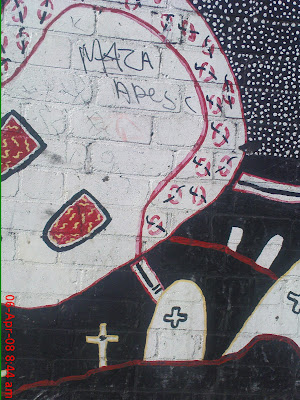
It is beyond imagining in responsible circles that we might have | some culpability for mass slaughter and destruction, or owe some debt to the millions of maimed and orphaned, or to the peasants who still die from exploding ordnance left from the U.S. assault, while the Pentagon, when asked whether there is any way to remove the hundreds of thousands of anti-personnel bomblets that kill children today in such areas as the Plain of Jars in Laos, comments helpfully that "people should not live in those areas. They know the problem."
The primary targets of the manufacture of consent are those who regard themselves as "the more thoughtful members of the community," the "intellectuals," the "opinion leaders." An official of the Truman administration remarked that "It doesn't make too much difference to the general public what the details of a program are. What counts is how the plan is viewed by the leaders of the community"; he "who mobilizes the elite, mobilizes the public," one scholarly study of public opinion concludes.
four
http://www.thirdworldtraveler.com/Chomsky/Necessary_Illusions.html

Compromised, guilty, yet in all the white sheets; the layers of grey, he thought he could detect someone trying to contact him. Not the pictures of a village where they could grow old, be together. Then he realised it was her. We were lovers once, you know, she said, instilling affection into the fluctuating white. We were without consent. There had to be a back walkway, a back verandah. They monitor everything, she said. Then why are you talking to me now, he asked. I'm basically using something else to hide my true activity.
What's wrong with the village? Everything's wrong with the village, it's an illusion. For a start. They know we're almost defeated. We were the worst of the worst of the resistants, ten wipes alter there's almost nothing left of us. Why don't we give in? We used to believe' we were fighting for something. So other people could be free. So the net wouldn't run absolutely everything. He had been warned that she might try to contact him. Her presence was not a surprise. There wasn't any acreage to retreat to. W're always going to be brave; shriek!
But Miss, this is the answer. She stared at the sheet of mathematical formulae in increasing shock. She's having an abortion. I'm the father. Random lives, other lives. These stray thoughts, he didn't know how he was going to answer her, or even if he watned to. What's the urgency? I'm several days ahead of you, I'm due for release soon, her voice came back. Do you want to meet in the rec room? He was everything. He loved the smell of him, everything about him. Then suddenly there was this grey haired woman, insisting they had been lovers. He didn't know which to blieve.
Then you went on to have an affair with both of them? Exactly. Nothing was coordinated but he knew she was trying to tell him something. It wasn't easy being an empath with an implant. He could hear everything, when he chose to. Why didi they keep wiping him? Could he trust her? He had been warned. She said it this morning. He couldn't work the system; back entrances, covered walkways, anonomisers at every step. The technology was beyond him now, not without serious attention to his deficiences. He was prepared to surrender. He didn't even know why he let her confuse him.
You can have your memories back, they had promised; and through the blur of the medication that was all he could think of. He made his way out to the rec room, but she realised the minute she saw him this was going to be another day of no progress. Even if the rockets don't get us, something else will. He gazed at her as if drunk. NOthing made sense. They're got you on more drugs than normal, she said. There's a remote chance. Fathered by... That was as good as it got some days, inchoate, unscrammable soup of half thoughts. It was no way to live.

THE BIGGER STORY:
http://news.bbc.co.uk/2/hi/europe/7373172.stm
For 24 years Elisabeth Fritzl and three of her children lived an isolated life in three tiny underground chambers, deprived of natural light and room to move around freely.
The rest of the Fritzl family lived in the house upstairs and had been forbidden by the domineering Josef Fritzl from ever going into the cellar, where the dungeon was.
The secret location was so well hidden that when the police searched the property they failed to find it until Mr Fritzl showed them where it was.
The dungeon is entered via a narrow passageway leading into rooms that include a cooking area and shower facilities, with children's drawings on the walls.
The cellar rooms cover an area of approximately 60 sq m (650 sq ft).
They are reached through a massive reinforced concrete door which was hidden behind a shelf in Mr Fritzl's workshop, which was in the cellar under the family house.

All pictures in recent series taken in central north western NSW on the roads between Gunnedah and Tambar Springs.

































